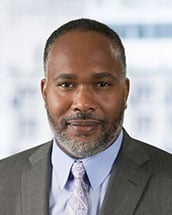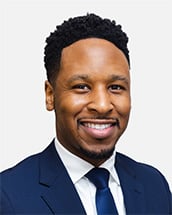A Legal Tightrope for Government Contractors
In brief
President Trump’s Executive Order 14173 calls for the elimination of what it characterizes as “illegal” DEI programs in the federal government. In addition, by making express references to the False Claims Act, the order provides another avenue for qui tam relators to bring FCA lawsuits and potentially signals increased FCA enforcement for government contractors with DEI programs. This alert provides essential insights and recommendations to help government contractors mitigate these risks and navigate the evolving legal landscape following President Trump’s orders.
In depth
Introduction
The False Claims Act (FCA), originally enacted to confront massive fraud committed against the US government during the Civil War, has now been enlisted by the Trump Administration as a tool to combat what it characterizes as “illegal” DEI programs, policies, and mandates in the federal government. On January 21, 2025, President Trump issued Executive Order 14173, titled, “Ending Illegal Discrimination and Restoring Merit-Based Opportunity” (“EO 14173” or the EO). Nestled within this EO is a directive requiring the head of each executive agency to include two specific terms in every contract or grant award: (1) a term requiring the contractor or grant recipient to “agree that its compliance in all respects with all applicable Federal anti-discrimination laws is material to the government’s payment decisions for purposes” of the FCA; and (2) a term requiring the contractor or grant recipient to “certify that it does not operate any programs promoting DEI that violate any applicable Federal anti-discrimination laws.”
This language, in addition to recent policy statements issued by Attorney General Pam Bondi, signals that government contractors with DEI programs are potentially at an increased risk of civil or even criminal enforcement from the Department of Justice (DOJ).
Brief Refresher On The FCA
At its core, the FCA’s purpose is to root out fraud, waste, and abuse committed against the federal government. In recent years, the FCA has been an extraordinary enforcement tool, resulting in nearly USD 3 billion in judgments and settlements in Fiscal Year 2024 alone. The statute is particularly punitive because it imposes treble damages and penalties (adjusted for inflation) on those who knowingly and falsely claim money from the United States, and it allows both the government and private whistleblowers (referred to as qui tam relators) to bring an action for alleged violations on the government’s behalf.
There are several forms of misconduct that can give rise to civil liability under the FCA, but the provision most relevant to EO 14173 is the false statement provision (31 U.S.C. § 3729(a)(1)(B).) This provision makes it unlawful for any individual or corporation to knowingly make, use, or cause to be made or used, “a false record or statement material to a false or fraudulent claim” submitted to the government.1
While the FCA does not define the term “false,” courts have determined that a legally false claim occurs when a federal contractor certifies compliance or fails to disclose noncompliance with all material contractual, statutory, and regulatory prerequisites to payment.2 In addition, a claim is “material” when it has “a natural tendency to influence, or be capable of influencing, the payment or receipt of money or property.”3
Potential Implications For FCA Enforcement
There are a number of open questions regarding how EO 14173 will be implemented and work in practice, including (but not limited to):
- Will the certification to “not operate any programs promoting DEI that violate any applicable Federal anti-discrimination laws” be the same across all federal agencies? For multi-national corporations, will this certification create a conflict of laws risk with public procurement requirements and expectations in other countries and jurisdictions?
- What is the difference between an “illegal DEI” program and a lawful one?
- Will the Federal Acquisition Regulation—the set of rules and guidelines that govern federal government procurement—be updated to reflect the EO’s directives?
- Is the EO retroactive, or does it only impact federal contracts and grants executed as of the date of the EO’s issuance?
- Will federal agencies amend the terms/provisions of open contracts to account for the EO’s directives?
- Since under the Small Business Administration’s 8(a) program, socio-economically certified businesses qualify for a percentage of the federal government’s contracting dollars, what does the EO mean for small businesses, women-owned businesses, or minority-owned businesses?
- What does the EO mean for federal government subcontractors?
All of these unanswered questions make it difficult to fully assess the impact of EO 14173 on FCA enforcement at this time. Nonetheless, we anticipate seeing an uptick in FCA claims in the coming years for two primary reasons. First, employees who oppose DEI programs might see the EO as an easy opportunity to file a complaint if they have reason to believe their employer is continuing DEI programs and initiatives despite the EO’s mandate. Second, such complaints are likely to be well-received by Trump’s DOJ. Indeed, Attorney General Pam Bondi vowed to continue prosecuting FCA cases at her confirmation hearing, where she noted the critical role whistleblowers play in FCA enforcement and their contributions to recovering taxpayer dollars.
Recommendations For Federal Government Contractors
Despite the uncertainty surrounding the impacts of EO 14173, there are certain steps federal government contractors can and should take to minimize the risk of being subject to a FCA claim or from having their contract(s) with the federal government suspended or terminated.
For instance, federal contractors should consider conducting a comprehensive review of their existing contracts with federal agencies, identify those that contain references to DEI programs, and assess whether and to what extent removing or eliminating those programs would implicate Title VII of the Civil Rights Act and Equal Employment Opportunity Commission guidelines.
Federal contractors should also consider whether and to what extent they need to modify what is externally projected on their websites and social media platforms when it comes to DEI programs and initiatives, including all press clips referencing this work. Under the EO, US contracting officers will likely scrutinize what the contractor certifies to the government as it pertains to these DEI programs/initiatives, and any external statements that contravene the EO could form an early basis for an FCA claim. However, it is critical that multi-national contractors with public procurement agreements in multiple jurisdictions around the world conduct a conflict of laws analysis to ensure that their efforts to comply with the EO do not conflict with regulations in other countries that require certifications to implement diversity, equity, and inclusion programs and practices.
Federal contractors may also want to create an accounting of their performance and all expenses incurred under their existing contracts with federal agencies. All performance milestones and incurred expenses should be supported by robust documentation (e.g., receipts, performance awards, email correspondence with the contracting officer) in the event of a FCA claim or contract termination or suspension.
*********
If you are a federal government contractor affected by EO 14173, contact a lawyer on our team. Our firm can assist in helping you implement and navigate these risk-mitigation steps, all of which are critical exercises that will ensure your organization is able to continue providing services in light of the federal government’s evolving requirements.
1 31 U.S.C. § 3729(a)(1)(B) (emphases added).
2 Universal Health Serv., Inc. v. United States ex rel. Escobar, 579 U.S. 176, 191 (2016).
3 31 U.S.C. § 3729(b)(4).
4 Baker McKenzie is partnering with clients to conduct such health checks under legal privilege. Prioritized areas of review include what is externally projected on company websites, social media platforms, and public filings (such as Forms 10-K) when it comes to DEI programs and initiatives. (For more information, click here.)










